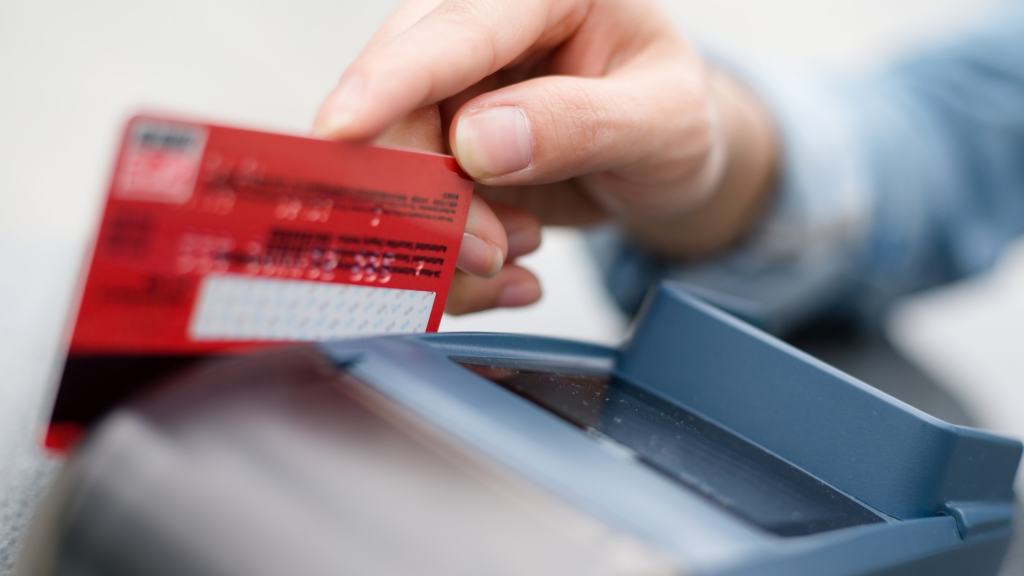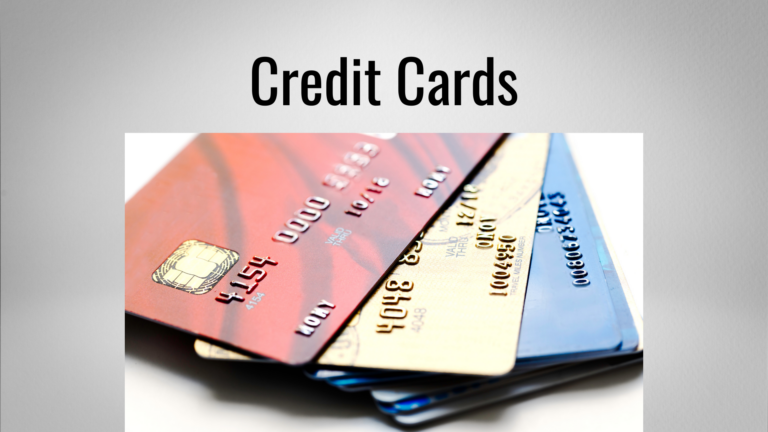Credit Cards
Credit cards are a great tool for making purchases and building your credit, but they can also get you into trouble if you aren’t careful. Here are some credit card facts as well as advice on how to use your card properly.
What Is a Credit Card?
A credit card is a physical card with a unique number that essentially allows you to make purchases using short-term loans that you will have to pay back. Credit cards are issued by companies such as Visa, Mastercard, and American Express, and can be obtained by getting one through your bank or from the credit card company directly.
When you make a purchase using your credit card, the card company makes the payment for you. At the end of the billing cycle (which is usually one month), the company sends you a statement telling you how much you owe them. You can choose to make the minimum payment for your statement instead of paying in full, but this means that you will carry a balance on your card into the next month. Carrying a balance can mean racking up interest and hurting your credit score. You can help build your credit score by paying your card off in full every month (which means no interest!) and making sure your balance doesn’t rise above 30% of your credit limit. Want to learn more about credit scores? Read our article here!
According to the Federal Reserve, the average credit card interest rate is around 17%. Given the extremely high interest rates on credit cards, it can be very easy to let your debt get out of hand. This is why it’s extremely important to pay your balance off in full every month and never spend money you don’t have.
How Do I Get a Credit Card?

You can get a credit card by sending in an application to your bank or to a credit card company. The application will usually ask you for your personal information as well as how much money you make. You will have to give the company permission to run a credit check on you; this allows them to see your credit score and determine whether you are worthy of granting credit as well as the amount of your credit limit.
Credit Cards vs. Debit Cards
Credit cards are very different from debit cards. A credit card is a card that allows you to use the credit card company’s money to make purchases and pay it back later. A debit card is directly linked to your checking account and allows you to use your own money to make purchases. Although it’s strongly discouraged, you can spend money you don’t have with a credit card, as long as you get the money to pay it back later. You cannot spend money you don’t have with a debit card (without facing overdraft penalties).
Rewards for Credit Cards
Some credit cards have rewards programs that can get you some pretty cool perks. One of the most common rewards systems is cash back. Many cards will give you 1% or 2% cash back on all your purchases, or on purchases at certain establishments such as restaurants, grocery stores, and gas stations. Another common system is the points system. Some cards give you “points” for purchases you make and allow you to use those points to purchase goods, flights, or hotels. Many companies such as airlines, hotel groups, and stores have their own credit cards, and using them can get you special rewards for those specific companies. Be careful, though; many such cards have annual fees.
Also be on the lookout for credit cards that have starting bonuses. For example, some cards will give you several thousand dollars in cash as long as you make several thousand dollars in purchases using the card within the first few months after you receive it. As long as you use the card for purchases you were already going to make anyways, this is free money!
Final Thoughts
Credit cards are a great way to start building up your credit, especially while you’re still young. Just make sure to pay your balance off in full!
